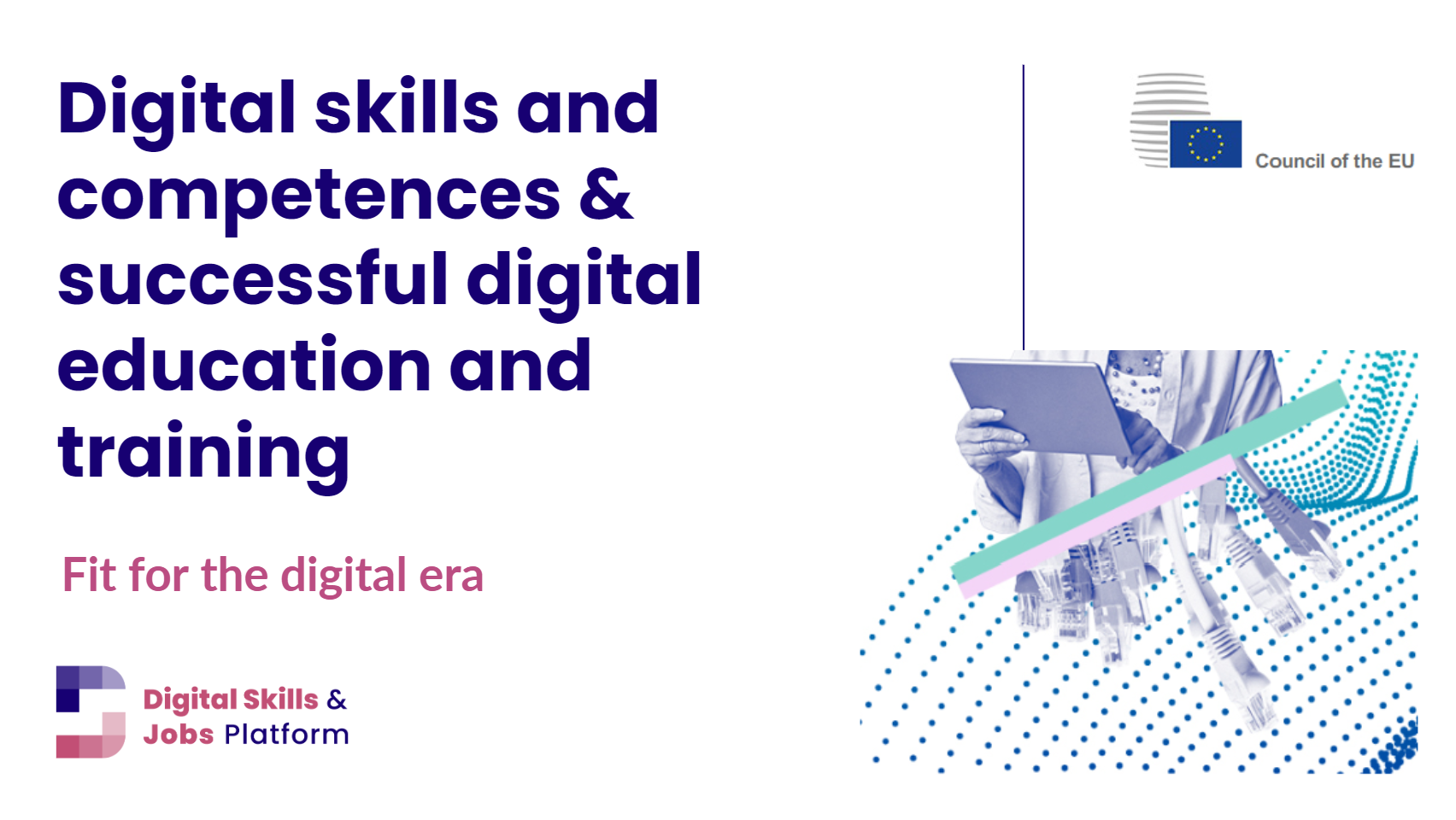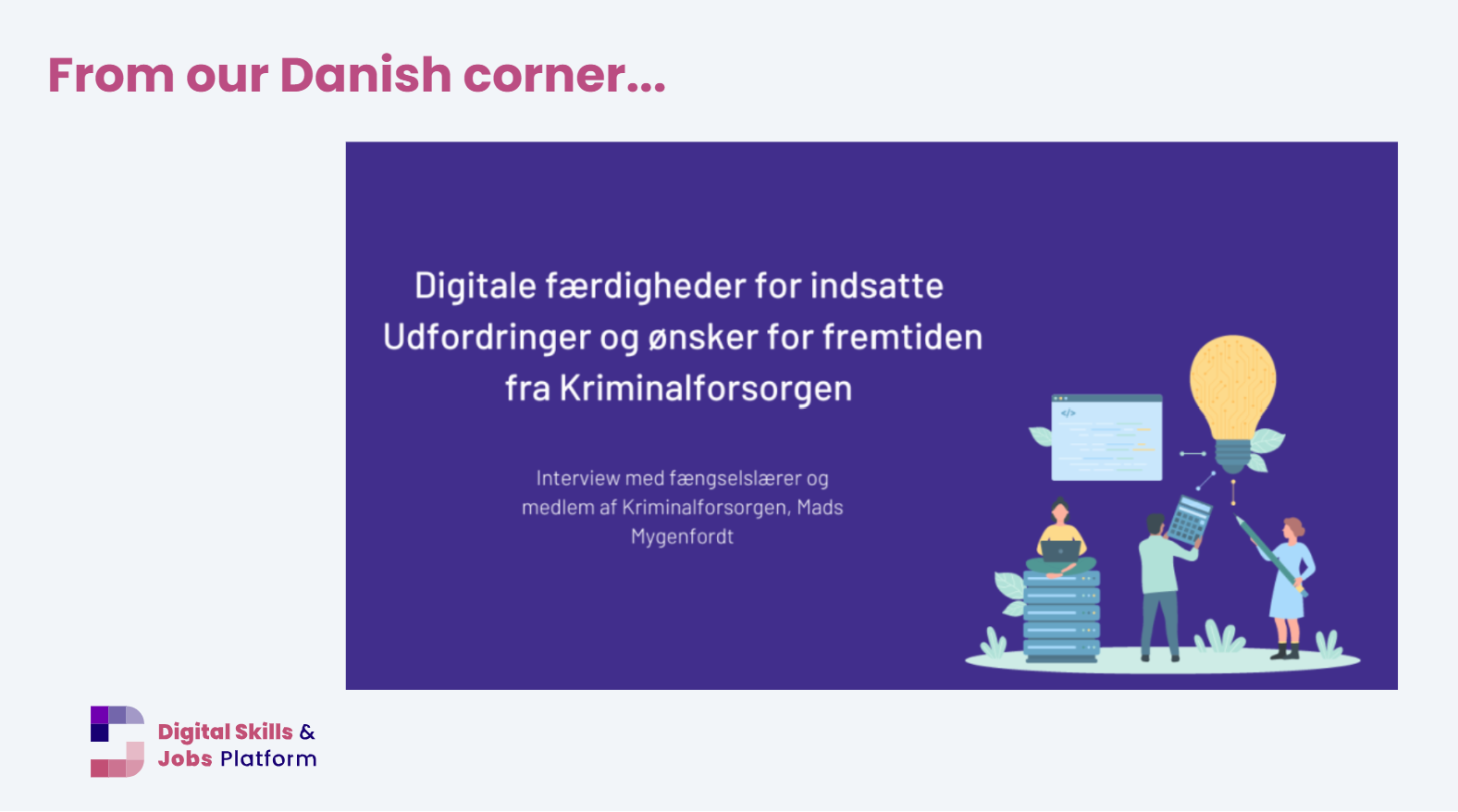On 23 November 2023, European Council adopted a set of recommendations to drive forward the digital transformation of education and training systems in Europe – and ensure the competences and skills of EU citizens and the labour force are fit for the digital age.
The set of recommendations (let’s call it a package) that the Council put out in November 2023 wants to see EU education system keep up with the times. This means they have to be able to foster future-proof skills and lead forward the twin digital and green transition, rather than adapt to the changing circumstances the new reality brings.
Two recommendations to transform education and training in Europe
The COVID-19 pandemic in Europe was a watershed moment for education, laying bare the largest gaps in our education and training systems and highlighting the need to improve their resilience, accessibility, and inclusivity. The overall EU strategy for the Digital Decade aims to see 80% of EU citizens have at least basic digital skills by 2030. The same goes for ICT experts, who should number 20 million by that time. With 2023 being hauled as the “European Year of Skills” by European Commission President Ursula Von der Leyen, the EU is ramping up ambition to reform education and training systems – today, and in the future.
Digital skills and competences
Against this backdrop, education and training systems have been slow to respond to the impact of the digital transformation, leading to high youth unemployment (albeit decreasing in recent years), and at the same time, a bunch of vacancies hard to fill due to the lack of qualified staff. For years and years, formal and non-formal education has not responded to the changing reality of the labour market, and more effort is needed to bridge this gap.
This entails focusing on the needs of education and training when it comes to digital transformation, taking action at all levels (pre-primary, primary, secondary and vocational education and training, higher education, adult learning), in a lifelong learning perspective, and for all groups of the population (e.g. young people, adults and professionals).
The Council recommendation on digital skills and competences recommends that member states agree on national, and where appropriate regional, strategies or strategic approaches for digital education and skills and competences, inviting them to:
- set or review national objectives for the provision of these skills and competences
- take measures targeting ‘priority or hard-to-reach groups’
- strengthen digital skills and competences in primary and secondary education
- promote the teaching of digital skills transversally in different subjects
- enhance digital skills and competences for all students in higher education, providing learning opportunities across levels and disciplines
- give adults opportunities to acquire digital skills and address the shortage of ICT professionals
Digital education and training: key enabling factors
At the same time, the Council recommendation on the key enabling factors for successful digital education and training focuses on how to make education and training systems fit for the digital age. It provides guidance on how to prepare people to use technology creatively, safely and responsibly, basing themselves off of an improved understanding of the various impact these technologies can bring.
Among other measures, it calls on member states to:
- integrate digital technologies into teaching and empower teachers to use them
- support the development of digital educational tools, including research into the impact of artificial intelligence
- take cybersecurity measures in education and training, including awareness raising
- invest in connectivity, digital infrastructure and digital accessibility in education and training
More information? Check out the press release and the text of both recommendations below.
Saznaj više
-
Digitalna tehnologija / specijalizacija:
Digitalne vještine
-
Razina digitalnih vještina:
Osnovno
Srednja
Napredno
Stručnjak za digitalni sektor
-
Geografski opseg - Država:
Europska Unija
-
Vrsta inicijative:
Institucionalna inicijativa EU-a



